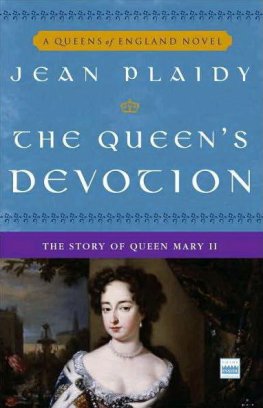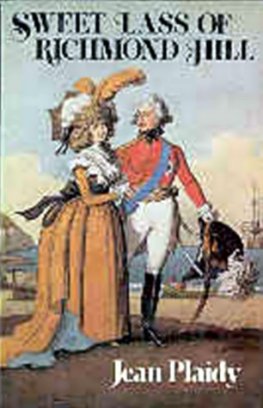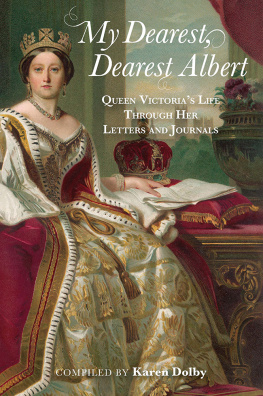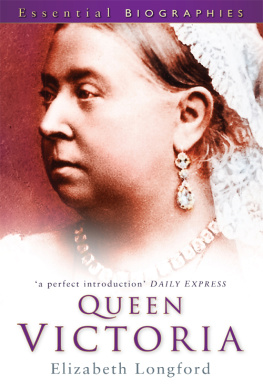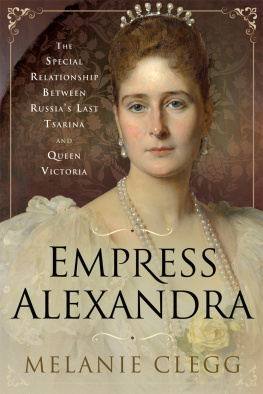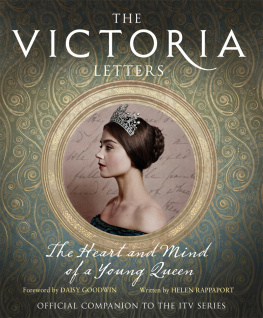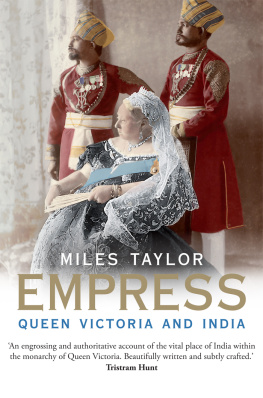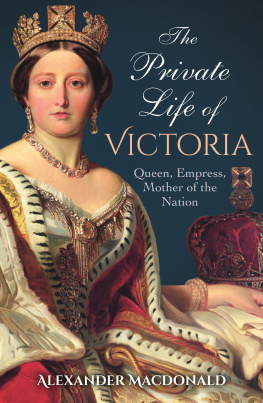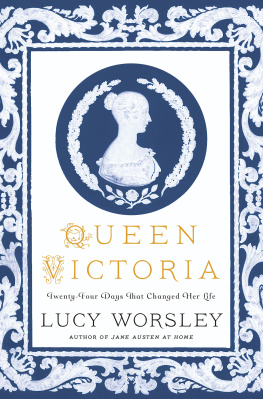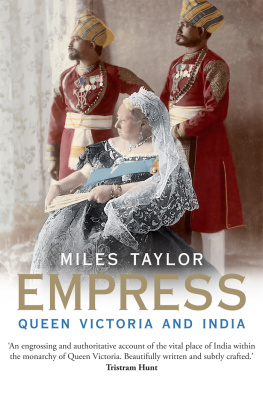Jean Plaidy
Victoria Victorious: The Story of Queen Victoria
Send her victorious
Happy and glorious
Long to reign over us
God save the Queen.
I WAS QUITE YOUNG WHEN I STARTED TO KEEP A JOURNAL. Mama said it would be good for me. She would read it, and that made it like a lesson; then she and Baroness Lehzen could put their heads together and say: The child is too exuberant, too emotional, and lacking in dignity. She is too impulsive and there are too many storms. All true, of course; but during the time of what I called my captivity I was never free from them; and it continued from the day of my birth to that glorious moment on the 20th of June in the year 1837 when the Archbishop and the Lord Chamberlain came to the Palace of Kensington to tell me I was the Queen.
I do not remember ever being alone. I even had to sleep in Mama's room, and Lehzen used to sit with me until Mama came to bed so that I should not be left to myself. How significant it was that one of the first things that occurred to me on that memorable day was: Now I can be alone.
So in my journal I would write that which would win their approval and that was sometimes not in accordance with my true feelings. I have always found great pleasure in writing, in music and painting; and I truly believe that I could have excelled at any of these occupations if destiny had not had other plans for me.
When I was a child and beginning to be aware of the frustrations of being watched and forbidden to do so many things that I wanted to, I longed to have a secret diary in which I could write down the daily happenings, for one is apt to forget important details if one does not record them at the time. I wanted to write of my life in Kensington Palace, of Lehzen, Spath, of my beautiful lifelike dolls and my scandalous uncles; I wanted to write of sinister Sir John Conroy and his influence on Mama and his determination to ensnare me when I was too young and inexperienced to resist him; I wanted never to forget the shivers he sent down my spine, for I do believe he seemed to me as menacing as my wicked one-eyed Uncle Cumberland. I wanted to be quite frank about the growing change in my feelings toward Mama. Naturally one must love one's mother; it is a duty; but I used to wish I could stop my eyes from seeing so much and my mind from coming to such conclusions. But that is no way for anyone to actcertainly not one who may become a queen.
If I could have had my secret diary, I could have confided in it. I could have recorded the sudden changes in my feelings. I could have found a reason for those sudden outbursts which Mama referred to as the storms. I might have come to a better understanding of myself as well as others.
But now, at this time, I am my own mistress, and in my lonely years when the one who was all the world to me has been taken away, I can indulge my whim; I like to spend long hours remembering the past, rereading my journals and setting it down as I should have done had it been for my eyes alone. There are differences now from what I wrote then, and in the writing I seem to see myself more clearly, to know myselfand the task absorbs me. I recall days of childhood in Kensington Palacethe prison, as I called it. I like to think back to that time when I first realized that I was not as other children about me, that I was Victoria who was destined for a crown.
That destiny dominated my childhood; it was the reason for Mama's concern. How she longed for the crown to be minefar more than I ever didpreferably before I was of age so that she could reign in my stead. How she hated poor old Uncle William because he refused to die! How she hated all my paternal uncles! She was protecting me from them, she would say. I must never forget how much I owed her. Poor Mama, she did not know that one cannot wholeheartedly love, however much one wants to, just because it is one's duty. There were times when Mama could become quite wearisome.
Now I can write for my eyes alone without consideration of what may be construed by my words, without the probing eyes of Mama or Lehzen finding in my simple observations characteristics that must be suppressed. Poor Mama! Dear Lehzen! They are beyond passing judgment on me now. And I am a lonely widow, with only memories of happier days left to me and the hope of finding comfort in the memory of time past.
IF MY COUSIN CHARLOTTE HAD NOT DIED SO TRAGICALLYAND her baby with herI should never have been born and there would never have been a Queen Victoria. I suppose there is a big element of chance in everybody's life, but I always thought this was especially so in mine. But for that sad event, over which the whole nation mourned, my father would have gone on living in respectable sinif sin can ever be respectablewith Madame St. Laurent, who had been his companion for twenty-five years; my mother would have stayed in Leiningen, though she might have married someone else, for although she was a widow with two children, she was only thirty-one years old and therefore of an age to bear more children. And I should never have been born.
It is hard to imagine a world without oneself, as I remarked to my governess, Baroness Lehzen, when she told me all this. She was a gossip and she liked to talk about the scandals that seemed perpetually to circulate about my family. She excused herself by pointing out that it was history, and because of what lay before mealthough it was not certain at that time that I should come to the throneit was something I should know.
It was unfortunate that my family, on my father's side, had a flair for creating scandalalthough this made those conversations with Lehzen more interesting than if they had been models for virtue. Almost all the uncles behaved without the decorum expected of a royal family; there were even rumors about the aunts. Poor Grandpapa, who had been a faithful husband and kept strictly within the moral codeso different from his sonshad to be put under restraint because he was mad; and Grandmama Queen Charlotte, even though she had been equally virtuous, had never found favor with the people. So many queens in our history had failed to win approval because they could not produce an heir; Queen Charlotte had overdone her duty in that respect and fifteen children had been born to her. Encumbrances, A Drain on the Exchequer, it was said. How difficult it was to please the people!
I was always interested in hearing of my cousin Princess Charlotte, which was natural since I owed my life to her death. Her father, who was the Prince Regent when I was born and became King George IV when I was about seven months old, had created more scandal than any of his brothers, and one of the greatest scandals in that family of scandals was the relationship between Charlotte's parents.
Charlotte had married my mother's brother, Prince Leopold, and Louisa Lewis, who had lived at Claremont with Charlotte and Leopold, told me they had been true lovers. Charlotte had been a hoyden. There was no other word for it, said Louisa, her lips twitching, implying that the frailties of Charlotte made her all the more lovable. That puzzled me considerably and I wondered why some people's faults made them endearing, when virtues did not always arouse the same kindly feelings.
Charlotte, however, this flouter of conventions, this wild untamed girl, had won the hearts of all about her, and chiefly that of Prince Leopold, her young husband, whose character and temperament were so different from her own.
He was heartbroken when she died, Louisa told me. Everyone was heartbroken.
Discussing this later with Lehzen, I remarked that perhaps people loved her because she was dead, for I had noticed that when people died they did seem to become more lovable than when they were alive.


